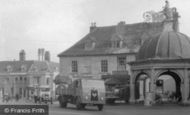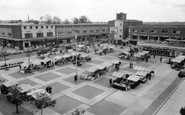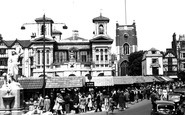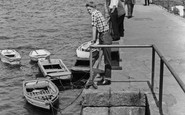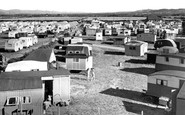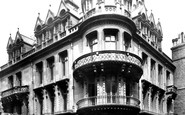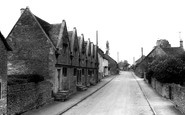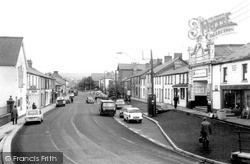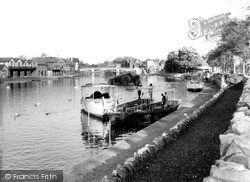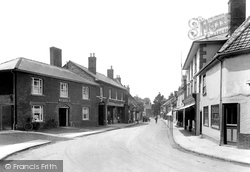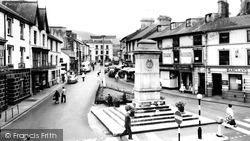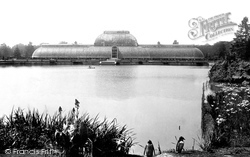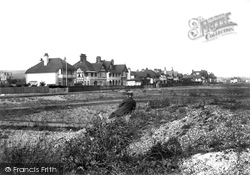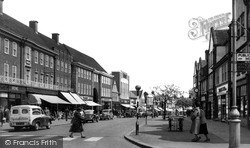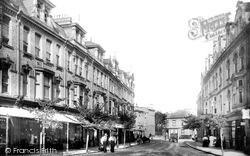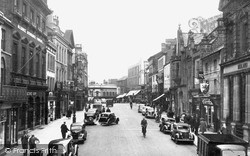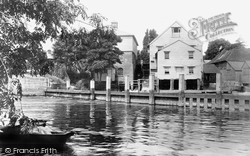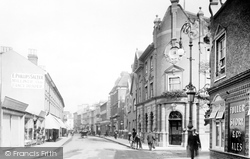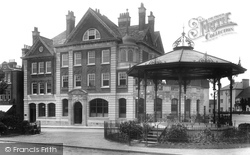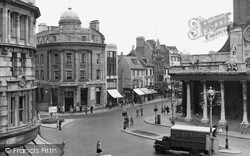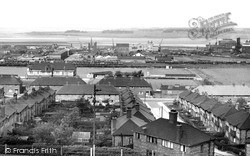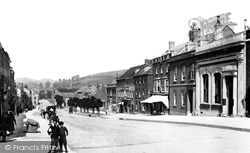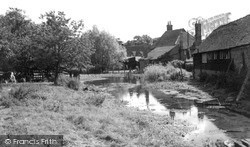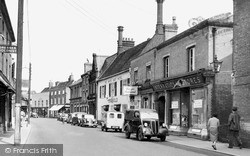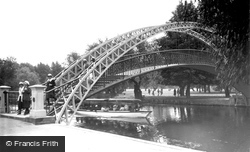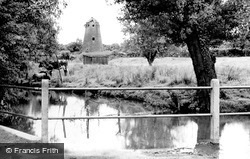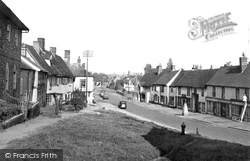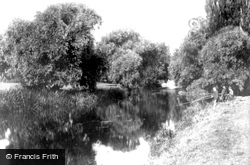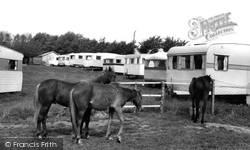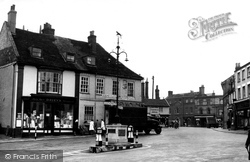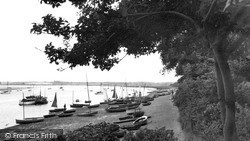Places
3 places found.
Those places high-lighted have photos. All locations may have maps, books and memories.
Photos
63 photos found. Showing results 1,041 to 63.
Maps
12 maps found.
Books
1 books found. Showing results 1,249 to 1.
Memories
7,564 memories found. Showing results 521 to 530.
The Lynemouth Inn
We used to call it the hotel, it was the hub of the village, there was a bottle and jug at the side door and me dad would send me down to get a bottle of double maxim and let me have a little taste when I was just a bairn. We ...Read more
A memory of Lynemouth in 1967 by
G Grandmother
My mother used to speak of Tarryblake as her grandmother, Helen Riddoch was born there. I think Mum used to visit an aunt at Tarryblake when she was little. I'd love to have a photo of the house. The Riddoch family were involved in the timber trade way back then too.
A memory of Tarryblake Ho by
School Days
I remember waiting for the bus here to take us back to Beccles after a day at school, St Mary's School to be exact! A lovely market town, what memories! Did anyone else attend St Mary's School around this time, or knew of anyone that did?
A memory of Bungay in 1957 by
Cafe In Market Square
I remember the cafe in the market square, my mum use to work in the open top part in the summer and my brother and I used to go and help her clear the tables when we were on school holidays. I remember the shops that ran ...Read more
A memory of Harlow in 1960 by
Follets
As one who was born in Kingston Hospital before WWII, I grew up not far away in Long Ditton. My job in the late 1940s was to go to Kingston Market on Christmas Eve and buy a goose for our Christmas dinner from Follets, when ...Read more
A memory of Kingston Upon Thames in 1948 by
Falmouth Fishstrand Quay C1960s
Ah yes, I remember going with my mother to Fishstrand Quay ice house to buy mackeral and crab. It was like a huge walk-in freezer with lots of large fridge doors and had massive latches on them with lots of ice ...Read more
A memory of Falmouth in 1960 by
Years Gone By From 1944 To Present Time
Hi, my name is Dot Dunn (nee Harmer). I've lived in Station Town and Wingate all my life and wouldn't want to live anywhere else and am still in contact with a lot of my school friends. I can still name ...Read more
A memory of Wingate in 1950 by
Ty Gynn Caravan Site
Hi, My family used to holiday in a caravan on Ty-gynn (sorry unsure of the spelling) camp site, we holidayed there from the late 1960's to about 1974. The caravan belonged to the mother of a work mate of my late father, the ...Read more
A memory of Towyn in 1968 by
A Very Unusual Bank Building In Style
The bank's origins relate to Blackburn, Lancashire, then moved to Manchester where a later generation of the Cunliffe Brooks became a very wealthy local landowner. Opened an Altrincham branch on 7th April ...Read more
A memory of Manchester in 1870 by
2,Almshouses. Kington.St.Michael
Ggg.grandad Worthy Tanner lived here in 1881 with his wife, Elizabeth and grandson Alfred Tanner. Worthy was born at Langley Burrell in 1804 and was an agricultural labourer all his working life. It seems that the Tanner name originated from this area back to 1566.
A memory of Kington St Michael in 1880 by
Captions
2,471 captions found. Showing results 1,249 to 1,272.
On the left, the library has become the health centre, and the ex-servicemen`s club is closed, but Lloyds Bank is still open.
One of Windsor's most famous view shows the town's bridge in the distance, which was erected in 1822.
On the left are Harry Webber, hairdresser, in the former Oakes Bank of 1885, the International Stores (Frederick Riches was manager), who traded here from 1909 to 1976, and Eccleston's, draper and grocers
The flower gardens have been replaced by a one-way system. The Castle Hotel once stood on the left-hand side, but today there is a National Westminster Bank on this corner.
Between Richmond and Kew, on the Surrey bank, are the three hundred acres of the Royal Botanical Gardens, opened to the public in 1841.
Kingsdown stands on the coast where the white cliffs of Dover give way to the extensive shingle beach that runs eastwards to Walmer & Deal. Caesar is said to have landed in this vicinity in 55BC.
Named after the field on which it was built, Leys Avenue was, even in 1960, a busy shopping thoroughfare.
Opposite Foale's butchery was the Naval Bank, which eventually became Maypole Corner with its glitzy gilt and glass signboard.
This marvellous scene shows a Wrexham that has since lost some of its unified Victorian and Edwardian streetscapes with its banks and traditional shop fronts.
The popular Complete Angler Hotel lies on the Berkshire bank and looks out across the Thames to Marlow.
Further development southwards was held up and the architectural variety shows this.
Also built during Queen Victoria's Diamond Jubilee year was Frederick Wheeler's proud bank, now the Nat West, in Queen Anne style in plum brick and with extensive Bath stone dressings.
The splendid Westminster Bank building on the corner of Mercers Row, distinguished by its striking dome, is now a branch of Nationwide; the tall, narrow building to the right of it is a jeweller and diamond
We are looking from the Beacon Hill area.
Here the photographer looks down West Street to Colmer's Hill (left), with the Lily Hotel projecting into the highway as it narrows to a normal width near the bottom of the hill.
Our second tour starts three miles west of Amersham in the delightful village of Little Missenden which grew up along the south bank of the River Misbourne and separated from Amersham by the parkland
The International Stores (right) has had a shop here since c1900, but by 1986 it had become Gateway.
The hatted ladies are leaving the Suspension Bridge on the north bank, the Embankment Gardens side: casual wear in the 1920s was somewhat more formal than today.
South-east of the village, a lane crosses the county boundary with Bedfordshire along the upper reaches of the young River Ouzel.
On the left is the jettied former Guildhall. At this end was Mark Ellis the tailor, later Fleming's Antiques; at the other end Barclays Bank.
The south bank always remained less formal than the north; it is a series of islands separated from the 'mainland' by a back river, which in its turn is separated by weirs from the north river.
This was among the 'horror pictures' used by the land agent John Cripwell in order to encourage Lord Antrim and the council of the National Trust to buy two thousand of acres from Lyme Regis to
The dog was Black Shuck, who supposedly attacked worshippers at church here and at Blythburgh in 1557.
This is the River Deben, viewed from near the Sailing Club House looking downstream towards White House; Waldringfield is to the right and Petistree Hall, in Sutton, is over to the left.
Places (3)
Photos (63)
Memories (7564)
Books (1)
Maps (12)

